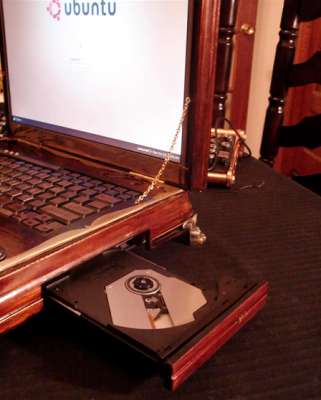Photos Rare pictures Photo ornaments Photo artists Photos Kramich Baby Photos Old photos Photo Messenger Pretty pictures Photo sad Youth Photos Funny Pictures Car Photos Photo Forums Photos stars Images contained Photos rose Natural images Romantic Wallpapers Images of animals Space Pictures Photos Birds Galleries Girls
Tuesday, September 6, 2011
La page Jesus Daily, animée par un nutritionniste américain fils de pasteur qui y distille la bonne parole, est suivie par plus de 8 millions de personnes et génèrerait depuis trois mois plus de likes, de commentaires et de partages que celles de Justin Bieber ou Lady Gaga.
La page Jesus Daily, animée par un nutritionniste américain fils de pasteur qui y distille la bonne parole, est suivie par plus de 8 millions de personnes et génèrerait depuis trois mois plus de likes, de commentaires et de partages que celles de Justin Bieber ou Lady Gaga.
 Facebook n'est donc pas qu'un repère d'exhibitionnistes 2.0 et d'ados écrivant en langage SMS où on s'échange exclusivement des vidéos et des blagues. A en croire le New York Times, qui consacre un article à la question, les bigots sont également présents en force sur le réseau social aux 700 millions de membres. Un phénomène qui intéresse moins les médias mais prend de plus en plus d'ampleur.
Facebook n'est donc pas qu'un repère d'exhibitionnistes 2.0 et d'ados écrivant en langage SMS où on s'échange exclusivement des vidéos et des blagues. A en croire le New York Times, qui consacre un article à la question, les bigots sont également présents en force sur le réseau social aux 700 millions de membres. Un phénomène qui intéresse moins les médias mais prend de plus en plus d'ampleur.
Selon l'analyse d'Allfacebook.com, site non-officiel qui traite toutes sortes de statistiques relatives au site fondé par Mark Zuckerberg, plusieurs pages consacrées à la religion, comme le Jesus Daily, exploseraient les mastodontes de Facebook en termes d'interactions.
Avec plus de 8 millions de fans, Jesus Daily est loin des Justin Bieber (35 millions) et autres Lady Gaga (43 millions). Mais ses suiveurs sont bien plus actifs, ayant généré 3,4 millions de likes, commentaires ou partages (la sainte-trinité de Facebook) la semaine dernière, contre 630 000 aux "beliebers", nom donné aux fans ultimes du chanteur à la mèche qui est un jeu de mot avec le terme "believer", croyant en anglais.
Mieux, quand on parcourt le classement général des pages qui génèrent le plus d'activité, on trouve trois pages consacrées à la religion dans le top 5, Jesus Daily, donc, mais aussi The Bible et une page en espagnol, Dio Es Bueno (Dieu est bon pour ceux qui n'entravent vraiment rien à la langue de Cervantes).

Les stars de la pop ou les clubs de football hyper médiatiques comme le FC Barcelone et Manchester United se font donc mettre à l'amende par un prophète barbu qui a démarré sa carrière il y a 2000 ans et défie toutes les lois de la ringardisation.
Mais, comme le note le New York Times, cette ferveur 2.0 est un vrai casse-tête pour l'Eglise. Le Pape Benoit XVI l'a rappelé récemment, "le contact virtuel ne peut pas et ne doit pas prendre le place du contact humain direct avec les gens". Tous ces likes ne valent pas des messes bondées dans l'esprit du clergé. En même temps, comment ne pas se réjouir de ce boom de la foi sur un support qu'on pensait destiné aux loisirs ou au personal branding (ou branling) ?
Quand on voit un simple statut de la page Jesus Daily comme "est-ce que Jésus est le numéro 1 pour toi ?" entraîner près de 150 000 likes et 5 000 commentaires, on comprend mieux l'intérêt que peuvent trouver les religions dans les réseaux sociaux, terrain où elles peuvent affronter directement la montée en puissance de l'athéisme.

Selon l'analyse d'Allfacebook.com, site non-officiel qui traite toutes sortes de statistiques relatives au site fondé par Mark Zuckerberg, plusieurs pages consacrées à la religion, comme le Jesus Daily, exploseraient les mastodontes de Facebook en termes d'interactions.
Avec plus de 8 millions de fans, Jesus Daily est loin des Justin Bieber (35 millions) et autres Lady Gaga (43 millions). Mais ses suiveurs sont bien plus actifs, ayant généré 3,4 millions de likes, commentaires ou partages (la sainte-trinité de Facebook) la semaine dernière, contre 630 000 aux "beliebers", nom donné aux fans ultimes du chanteur à la mèche qui est un jeu de mot avec le terme "believer", croyant en anglais.
Mieux, quand on parcourt le classement général des pages qui génèrent le plus d'activité, on trouve trois pages consacrées à la religion dans le top 5, Jesus Daily, donc, mais aussi The Bible et une page en espagnol, Dio Es Bueno (Dieu est bon pour ceux qui n'entravent vraiment rien à la langue de Cervantes).

Les stars de la pop ou les clubs de football hyper médiatiques comme le FC Barcelone et Manchester United se font donc mettre à l'amende par un prophète barbu qui a démarré sa carrière il y a 2000 ans et défie toutes les lois de la ringardisation.
Mais, comme le note le New York Times, cette ferveur 2.0 est un vrai casse-tête pour l'Eglise. Le Pape Benoit XVI l'a rappelé récemment, "le contact virtuel ne peut pas et ne doit pas prendre le place du contact humain direct avec les gens". Tous ces likes ne valent pas des messes bondées dans l'esprit du clergé. En même temps, comment ne pas se réjouir de ce boom de la foi sur un support qu'on pensait destiné aux loisirs ou au personal branding (ou branling) ?
Quand on voit un simple statut de la page Jesus Daily comme "est-ce que Jésus est le numéro 1 pour toi ?" entraîner près de 150 000 likes et 5 000 commentaires, on comprend mieux l'intérêt que peuvent trouver les religions dans les réseaux sociaux, terrain où elles peuvent affronter directement la montée en puissance de l'athéisme.
Pour apprécier ce tumblelog à sa juste valeur, munissez-vous d'une bonne dose d'humour cruel
Pour apprécier ce tumblelog à sa juste valeur, munissez-vous d'une bonne dose d'humour cruel, sinon ça ne va pas passer. Animals With Casts, comme son nom l'indique, répertorie un max de photos de bestioles estropiées, avec des plâtes et des bandages. Si certains ont l'air tellement idiots qu'on est obligé de rire, à certains moments, on en arracherait presque une larme à la vue de ces pauvres petites créatures convalescentes...
Une réplique de la Batmobile du Batman de Tim Burton, sorti en 1989, a été mise en vente sur e-bay par le designer auto Casey Putsch. Avis aux amateurs.

Ce joujou de luxe n'est donc pas qu'un gadget puisqu'on peut rouler avec et que Casey Putsch a poussé le vice jusqu'à la faire enregistrer et assurer pour avoir le droit d'emprunter les routes américaines.
Pour s'offrir cette pièce unique, il faut toutefois être très riche, en plus d'être gros fan de Batman, cette Batmobile ayant été mise en vente à 620 000 dollars, soit un peu plus de 436 000 euros.
Autre inconvénient, la turbine qui fait toute l'originalité du véhicule fait un boucan d'enfer, si l'on en juge par la vidéo de démonstration que Casey Putsch a lui-même posté sur YouTube il y a quelques semaines.
Ce dernier affirme que le bruit est tout à fait supportable à l'intérieur du cockpit, et qu'il s'attenue rapidement à l'extérieur car il est "composé de mediums". On plaint tout de même les futurs voisins du futur propriétaire de cette Batmobile qui n'a pas l'air de rouler bien vite et doit consommer grave...

La vie est toujours beaucoup plus cool en noir et blanc. Black And White, tumblelog présentant une bien belle maquette, propose une sélection de photos et de créations uniquement en niveau de gris, que ce soient des portraits, des natures mortes, des paysages... Bref, une jolie collec' de photos à l'élégance indéniable. Et il y a même des gifs !
La vie est toujours beaucoup plus cool en noir et blanc. Black And White, tumblelog présentant une bien belle maquette, propose une sélection de photos et de créations uniquement en niveau de gris, que ce soient des portraits, des natures mortes, des paysages... Bref, une jolie collec' de photos à l'élégance indéniable. Et il y a même des gifs !
Suivre le flux d'actualité Tumblr sur Fluctuat
Suivre le flux d'actualité Tumblr sur Fluctuat
Proposer un Tumblr
Retrouvez la rubrique Tumbl'heure sur Tumblr
Un russe touche 1000 paires de seins pour Poutine
En dépit de la traduction en anglais du texte de présentation, le sens de cette vidéo intrigue. Pourquoi ce dénommé Sam s'est-il donné comme mission de toucher 1000 poitrines (soit 2000 seins, rendez-vous compte) pour ensuite serrer la main de Poutine et lui passer son mojo ? Qu'a-t-il bien pu leur dire pour que ces jeunes femmes acceptent cette palpation mammaire ?
Par la puissance des boobs, cette vidéo pourtant bien trop longue (quasi 20 minutes) pour l'habituel format buzz connait en tout cas un certain succès avec plus d'1 millions de vues en 24h. Et les internautes masculins de se voiler la face sur l'explication la plus plausible : tout ceci n'est qu'une vulgaire campagne virale destinée à l'élection en 2012 de Vladimir Poutine, le Chuck Norris de la politique.
Au début de l'été, des bimbos russes se présentant comme la "Putin's army" s'exhibaient déjà sur YouTube et Facebook, appelant leurs compatriotes à déchirer leurs bodys pour Poutine avec un iPad à gagner à la clé. Pour expliquer tout ceci, reste maintenant à trancher entre deux hypothèses : soit Poutine est désespéré, soit c'est le meilleur candidat du monde. Chacun jugera, mais si j'étais Medvedev je me ferais du souci.
PS : Quelqu'un peut-il confirmer s'il est légal en Russie de peloter des gamines de 13 ans ?
Games and gimmicks
When I was a young lad I saved up long and hard to be one of the first in my class to have an LED watch.It cost about £15 which was a huge amount for a school boy in the 1970′s, and I had to deliver newspapers in the rain for weeks on end to save up for it.
But I always knew it would be worth every penny because it would make me cool, something that my tank-tops and flared trousers somehow failed to achieve.
I can’t remember now if it was worth the effort, and I suspect the girls didn’t come flocking around me in quite the way I had hoped, but I still remember the joy at being able to push a button in the middle of the night to see the time light up. Ah, simple pleasures…
Unfortunately when I went to show it to my grandfather he showed me his big new LCD watch, which also had an alarm and an unusably small calculator built in. Finding out I was less cool than my own grandparents meant I lost interest in the watch soon after.
Leaping forward through the decades (during which I alternated between being a geek, playing astronauts, and then later becoming an accountant) I never managed to recapture the simple pleasure of that watch.
But now at last I have discovered what has been missing from my life.
Everyone has heard of the ipad, lots of people have one, and now so do I. As with my LED watch it’s impossible to justify the cost, but also impossible to explain the pleasure of using one.
Watch films, read a book, play games, surf the internet, learn about anything at all, catch up with the news…and all without getting out of bed in the morning, or while sitting in the garden with a glass of Chateau Margaux. The ipad is beyond cool to look at and use and well worth every hard earned penny.
But unfortunately having an ipad in southern France doesn’t make me cool – it makes me a geeky guy with a cool toy. To be cool and trendy in these parts I would need to buy an oversized chainsaw or a shiny new tractor, both of which are much too dangerous for me to use without chopping an arm off.
But I’m not going to let that take away from my pleasure, and for as long as I can keep it out of the children’s clutches (they are hovering close by…) I’m going to make the most of the first toy I’ve had in more than three decades that lets me relive that childhood pleasure, even if just for a week or two.
If anyone else has a better way to impress the locals without risking life and limb please le me know, meanwhile I’m off to watch Big Bang Theory on the television while searching for other sad geeky folk to be friends with on facebook…
But I always knew it would be worth every penny because it would make me cool, something that my tank-tops and flared trousers somehow failed to achieve.
I can’t remember now if it was worth the effort, and I suspect the girls didn’t come flocking around me in quite the way I had hoped, but I still remember the joy at being able to push a button in the middle of the night to see the time light up. Ah, simple pleasures…
Unfortunately when I went to show it to my grandfather he showed me his big new LCD watch, which also had an alarm and an unusably small calculator built in. Finding out I was less cool than my own grandparents meant I lost interest in the watch soon after.
Leaping forward through the decades (during which I alternated between being a geek, playing astronauts, and then later becoming an accountant) I never managed to recapture the simple pleasure of that watch.
But now at last I have discovered what has been missing from my life.
Everyone has heard of the ipad, lots of people have one, and now so do I. As with my LED watch it’s impossible to justify the cost, but also impossible to explain the pleasure of using one.
Watch films, read a book, play games, surf the internet, learn about anything at all, catch up with the news…and all without getting out of bed in the morning, or while sitting in the garden with a glass of Chateau Margaux. The ipad is beyond cool to look at and use and well worth every hard earned penny.
But unfortunately having an ipad in southern France doesn’t make me cool – it makes me a geeky guy with a cool toy. To be cool and trendy in these parts I would need to buy an oversized chainsaw or a shiny new tractor, both of which are much too dangerous for me to use without chopping an arm off.
But I’m not going to let that take away from my pleasure, and for as long as I can keep it out of the children’s clutches (they are hovering close by…) I’m going to make the most of the first toy I’ve had in more than three decades that lets me relive that childhood pleasure, even if just for a week or two.
If anyone else has a better way to impress the locals without risking life and limb please le me know, meanwhile I’m off to watch Big Bang Theory on the television while searching for other sad geeky folk to be friends with on facebook…
It never rains but it pours
The weather has been very odd here for the last few days, with spring rain unexpectedly turning up after three months of early summer, in the form of storms and torrential showers.
Last Saturday we had 8cm of rain in less than an hour (the most I’ve ever seen) which started about an hour before the guests were due to arrive in the gites…
Ever seen that much rain in such a short time?Mrs B started off dancing around and singing in the rain because the garden was at last getting watered, then within about 15 minutes the streams started to appear, followed rapidly by rivers, and a deluge shortly after…
Although we live more or less on top of a hill the field next to us managed to pour about a zillion gallons of water across our courtyard – and in no time at all we were trying to make sandbags and dig trenches to stop the gites filling with water, while we got completely soaked from head to toe.
Of course, by the time the holidaymakers arrived the sun was back out, the streams and flashfloods had disappeared, and we were both stood in the courtyard soaked from head to toe and completely bedraggled. Must have been quite a startling sight – I’m surprised they didn’t turn straight round and drive off again.
Funny thing is the downpours are extremely localised, so people who live just a few kilometres from here had a perfectly lovely sunny day, and are still complaining about dried out gardens.
The people staying in the other gite came across one of the downpours last week when they set off for a six hour canoe trip along the Dordogne. Apparently they enjoyed blazing sun for four hours followed by torrential rain for the last two hours.
They tell us they were rather wet when they got back, but at least they have an amusing story to tell people – which is of course the main goal of a holiday here, or so we like to tell people whenever there is a disaster.
PS if you are arriving in the south of France this week you will be pleased to hear the worst is behind us – check out the weather in France just before you set off – but you might like to bring your wellies just in case and a big umbrella just in case…
Last Saturday we had 8cm of rain in less than an hour (the most I’ve ever seen) which started about an hour before the guests were due to arrive in the gites…
Ever seen that much rain in such a short time?Mrs B started off dancing around and singing in the rain because the garden was at last getting watered, then within about 15 minutes the streams started to appear, followed rapidly by rivers, and a deluge shortly after…
Although we live more or less on top of a hill the field next to us managed to pour about a zillion gallons of water across our courtyard – and in no time at all we were trying to make sandbags and dig trenches to stop the gites filling with water, while we got completely soaked from head to toe.
Of course, by the time the holidaymakers arrived the sun was back out, the streams and flashfloods had disappeared, and we were both stood in the courtyard soaked from head to toe and completely bedraggled. Must have been quite a startling sight – I’m surprised they didn’t turn straight round and drive off again.
Funny thing is the downpours are extremely localised, so people who live just a few kilometres from here had a perfectly lovely sunny day, and are still complaining about dried out gardens.
The people staying in the other gite came across one of the downpours last week when they set off for a six hour canoe trip along the Dordogne. Apparently they enjoyed blazing sun for four hours followed by torrential rain for the last two hours.
They tell us they were rather wet when they got back, but at least they have an amusing story to tell people – which is of course the main goal of a holiday here, or so we like to tell people whenever there is a disaster.
PS if you are arriving in the south of France this week you will be pleased to hear the worst is behind us – check out the weather in France just before you set off – but you might like to bring your wellies just in case and a big umbrella just in case…
Driving habits in France
They tell me that more people than ever will be coming to France this summer so I thought a quick reminder of driving habits in France would be useful. Happily lots of drivers fall into one sterotype or another so it’s quite easy to know what to look out for…
1. Cars that drive 10 centimetres behind you, swaying from side to side on dangerous corners looking for any chance to overtake
These are being driven by young French lads who have passed their test in the last three months and are now in a desperate hurry to get somewhere. It’s not clear why they think it is worth risking their lives to get there 30 seconds earlier, but you have two choices: pull over and let them pass as soon as possible, or drive slower and slower until you are both doing about 10 miles an hour.
The second approach will probably mean they drive even closer and more dangerously and start flashing but will perhaps bring you a small amount of satisfaction.
Typical vehicle: small and fast, and often brand new. I don’t know how young drivers afford such flashy cars but they will usually be driving a better car than your own.
2. Cars that drive very slowly 10 centimetres in front of you, swaying from side to side and continually swerving between the middle of the road and the ditch
These are being driven by elderly French who have realised that it isn’t worth rushing to get anywhere.
Your choices are: to veer dangerously in and out in an effort to overtake on a dangerous corner, or to drive even closer and start flashing…
Typical vehicle: very small and very old (like the driver), and belching large amounts of exhaust fumes. Perhaps old folk are exempt from exhaust emission tests?
3. Large cars that block the entire road and are driven at exactly the speed limit
These are usually being driven by the Dutch, who are safe drivers (when they are not forcing cyclists off the road with their oversized vehicles) but do like to drive cars three times as large as the European average, which can make overtaking tricky.
The more ambitious among them trade in their big cars for a motorhome – not, I think, because they want to tour around and see different places, but simply because a motorhome is bigger than even a big car.
Typical car: a special brand unknown elsewhere outside Holland and built for size rather than style. Might well also have a large luggage carrier box on top and a couple of bikes on the back.
4. Cars that come zooming towards you on the wrong side of the road
These are either the young French drivers referred to above, overtaking on a dangerous bend, or other holidaymakers.
UK drivers are used to driving on the left and occasionally forget they are driving in France and set off on the wrong side of the road. Happily this is usually on quiet roads (it’s hard to forget on a busy road when there are lots of other cars around) so the danger isn’t so great, but still something to watch out for on back roads.
5. The midday rush hour
In the countryside many workers rush to a restaurant or home for lunch between 12.00 and 2.00. Hence the roads are far more hazardous around those two times. They usually drive at top speed, with the added ‘bonus’ that they don’t care if their vehicle gets dented so same advice as (1) above – pull over and let them pass, don’t try and get between a Frenchman and his lunch break.
Typical vehicle: large white van
6. Middle of the night – expat hour
Expats typically drive quite sedately, but they do have one challenge – how to drink all night at a friends house and then get home without being pulled-over and breathalysed. The first option is not to drink, a choice that gets rejected as soon as the aperitifs are produced.
The second is to find a route home that avoids all possibility of detection. France is a big country criss-crossed by remote country lanes, and it is almost always possible, given enough planning, to get from A to B without passing through any towns or villages.
Of course, what is usually a five minute journey might well become a 50 mile journey taking an hour or two, but what does it matter – most expats don’t need to get up for work in the morning.
You probably won’t meet these drivers, but if you are staying somewhere in a remote countryside location where you see no cars all day, but then there is a stream of traffic in the lane outside at 2am every night, you will know what has caused it. Venture out at your peril.
Note: there is a second category of expat driver, seen more rarely, that refuse to leave home without a large trailer full of building materials attached to the back of the car and then drive at high speed. Approach with extreme caution.
 And don’t forget – always carry a yellow safety jacket with you in your car. Or Karl Lagerfeld to wear one for you.
And don’t forget – always carry a yellow safety jacket with you in your car. Or Karl Lagerfeld to wear one for you.
PS My own driving? A recent survey found that something like 85% of male drivers thought they were among the best drivers on the road. I am proud to fall in this category.
1. Cars that drive 10 centimetres behind you, swaying from side to side on dangerous corners looking for any chance to overtake
These are being driven by young French lads who have passed their test in the last three months and are now in a desperate hurry to get somewhere. It’s not clear why they think it is worth risking their lives to get there 30 seconds earlier, but you have two choices: pull over and let them pass as soon as possible, or drive slower and slower until you are both doing about 10 miles an hour.
The second approach will probably mean they drive even closer and more dangerously and start flashing but will perhaps bring you a small amount of satisfaction.
Typical vehicle: small and fast, and often brand new. I don’t know how young drivers afford such flashy cars but they will usually be driving a better car than your own.
2. Cars that drive very slowly 10 centimetres in front of you, swaying from side to side and continually swerving between the middle of the road and the ditch
These are being driven by elderly French who have realised that it isn’t worth rushing to get anywhere.
Your choices are: to veer dangerously in and out in an effort to overtake on a dangerous corner, or to drive even closer and start flashing…
Typical vehicle: very small and very old (like the driver), and belching large amounts of exhaust fumes. Perhaps old folk are exempt from exhaust emission tests?
3. Large cars that block the entire road and are driven at exactly the speed limit
These are usually being driven by the Dutch, who are safe drivers (when they are not forcing cyclists off the road with their oversized vehicles) but do like to drive cars three times as large as the European average, which can make overtaking tricky.
The more ambitious among them trade in their big cars for a motorhome – not, I think, because they want to tour around and see different places, but simply because a motorhome is bigger than even a big car.
Typical car: a special brand unknown elsewhere outside Holland and built for size rather than style. Might well also have a large luggage carrier box on top and a couple of bikes on the back.
4. Cars that come zooming towards you on the wrong side of the road
These are either the young French drivers referred to above, overtaking on a dangerous bend, or other holidaymakers.
UK drivers are used to driving on the left and occasionally forget they are driving in France and set off on the wrong side of the road. Happily this is usually on quiet roads (it’s hard to forget on a busy road when there are lots of other cars around) so the danger isn’t so great, but still something to watch out for on back roads.
5. The midday rush hour
In the countryside many workers rush to a restaurant or home for lunch between 12.00 and 2.00. Hence the roads are far more hazardous around those two times. They usually drive at top speed, with the added ‘bonus’ that they don’t care if their vehicle gets dented so same advice as (1) above – pull over and let them pass, don’t try and get between a Frenchman and his lunch break.
Typical vehicle: large white van
6. Middle of the night – expat hour
Expats typically drive quite sedately, but they do have one challenge – how to drink all night at a friends house and then get home without being pulled-over and breathalysed. The first option is not to drink, a choice that gets rejected as soon as the aperitifs are produced.
The second is to find a route home that avoids all possibility of detection. France is a big country criss-crossed by remote country lanes, and it is almost always possible, given enough planning, to get from A to B without passing through any towns or villages.
Of course, what is usually a five minute journey might well become a 50 mile journey taking an hour or two, but what does it matter – most expats don’t need to get up for work in the morning.
You probably won’t meet these drivers, but if you are staying somewhere in a remote countryside location where you see no cars all day, but then there is a stream of traffic in the lane outside at 2am every night, you will know what has caused it. Venture out at your peril.
Note: there is a second category of expat driver, seen more rarely, that refuse to leave home without a large trailer full of building materials attached to the back of the car and then drive at high speed. Approach with extreme caution.
 And don’t forget – always carry a yellow safety jacket with you in your car. Or Karl Lagerfeld to wear one for you.
And don’t forget – always carry a yellow safety jacket with you in your car. Or Karl Lagerfeld to wear one for you.PS My own driving? A recent survey found that something like 85% of male drivers thought they were among the best drivers on the road. I am proud to fall in this category.
What do you take on holiday
July is upon us and it’s nearly time to start packing for the car for your annual fortnight in the sun (I’m assuming you are coming to France!) so our friends at Buggs Car Hire suggested we think about what people should bring with them to be sure their trip isn’t a complete disaster.
If you are flying to France with Ryanair you don’t have much choice what to bring, since even a can opener and a jar of marmite will take you far over the allowed weight limit, but if you are travelling by car you have some tough decisions to make about what you should try and squeeze in.
I’d love to know what people do bring to France with them, the little things that they think they can’t live without when they get here. Firstly so we could be better equipped in our own gites, and second because I’m very nosy and like to make fun of other people’s little foibles, as if I don’t have plenty of my own.
For example, when I go away myself and stay in ‘French-style’ accommodation I always end up buying a mug, since drinking five very small cups of tea just isn’t the same as one big mugful.
Everyone has their very own peculiarities and its hard to predict what these are, and I’m guessing it would be a bit rude of me to wait until people staying in our gites go to the market and then search their belongings for knife sharpeners, packs of cards, illuminated key-rings and other useful knick-knacks.
So I’ve been trying to come up with a list of things that you might like to either bring with you, or check whether your gite already has them. Here’s my top 5 so far:
1) converter plugs – if you arrive in rural France and Johnny can’t charge his ipod all week it might ruin his holiday. And yours shortly after.
2) plug-in mosquito killers
3) umbrellas – no one brings them on a summer holiday but if it rains they can be quite useful. Otherwise we suggest you dive into the pool and wait for it to stop.
4) ipod docking station
5) torches – the kind of thing that always goes missing if you supply them in a holiday rental but useful if you are walking home in the pitch black after a night at the evening market. City folk sometimes forget just how dark the countryside can be.
Are there other little things that you think are vital but nobody remembers? Let me know now and perhaps I can get them in the gites before high season…
If you are flying to France with Ryanair you don’t have much choice what to bring, since even a can opener and a jar of marmite will take you far over the allowed weight limit, but if you are travelling by car you have some tough decisions to make about what you should try and squeeze in.
I’d love to know what people do bring to France with them, the little things that they think they can’t live without when they get here. Firstly so we could be better equipped in our own gites, and second because I’m very nosy and like to make fun of other people’s little foibles, as if I don’t have plenty of my own.
For example, when I go away myself and stay in ‘French-style’ accommodation I always end up buying a mug, since drinking five very small cups of tea just isn’t the same as one big mugful.
Everyone has their very own peculiarities and its hard to predict what these are, and I’m guessing it would be a bit rude of me to wait until people staying in our gites go to the market and then search their belongings for knife sharpeners, packs of cards, illuminated key-rings and other useful knick-knacks.
So I’ve been trying to come up with a list of things that you might like to either bring with you, or check whether your gite already has them. Here’s my top 5 so far:
1) converter plugs – if you arrive in rural France and Johnny can’t charge his ipod all week it might ruin his holiday. And yours shortly after.
2) plug-in mosquito killers
3) umbrellas – no one brings them on a summer holiday but if it rains they can be quite useful. Otherwise we suggest you dive into the pool and wait for it to stop.
4) ipod docking station
5) torches – the kind of thing that always goes missing if you supply them in a holiday rental but useful if you are walking home in the pitch black after a night at the evening market. City folk sometimes forget just how dark the countryside can be.
Are there other little things that you think are vital but nobody remembers? Let me know now and perhaps I can get them in the gites before high season…
Flying children out of France
Bacs and brevets are over and it’s fun time for the children so daughter two is heading to England for a week of fun with a couple of Dutch friends.
I’m not sure what Mrs B said to her brother and family to convince them to put up with a group of teenage girls but they obviously don’t know what they are letting themselves in for…but meanwhile a litle bureaucratic problem has cropped up which is complicating things.
France has a rule called the ‘Autorisation de sortie du territoire’ which says that French children can only leave France without their parents if they have a special form signed and stamped by the local town hall authorising the trip.
No problem, it sounds like a reasonable rule which specifically ‘s’adresse a tout mineur de nationalité française‘ i.e. applies to children of French nationality. Good, that won’t be a problem then because English and Dutch nationals are outside the rule.
The airline they are flying with, jet2, include this requirement in their regulations: ‘Les enfants résidant en France non accompagnés ne pourront embarquer sans ce formulaire complété‘ (children resident in France can not take the flight without the authorisation form).
But wait – the law talks of ‘French nationals’ and the airline rules talk of ‘French residents’. English and Dutch children are residents but not nationals, which leaves the challenge of obtaining a form from the town hall for them which is not a legal necessity – and the town hall are (not altogether surprisingly) a bit unhappy about it.
Our own daughter got the authorisation form without difficulty – simply because our own town hall isn’t familiar with the small print of the law. But one of the Dutch children went with their Dad to their local village town hall and were told ‘we can’t give you the form, go to the town hall in the local town instead. Which they did – and were told ‘we can’t give you the form, go to the town hall in the sous-prefecture (larger town) instead’, which they did.
I’m thinking you can probably guess what they were told when they got there…yes, ‘we can’t give you the form, go to the town hall in the prefecture (capital of the department) instead’.
They were especially amused when they got to the last town hall to be told ‘we are closed Thursday afternoons, come back tomorrow’. Slightly inconvenient because they were now about 60 kilometres from home…and quite possibly won’t get the form even if they do go back.
So now the children seem to be in the curious position that they can only leave the country with jet2 if they have an authorisation form which is not possible to get hold of and is not a legal requirement.
Tricky problem, and only one business day left to sort it out!
If by chance anyone else has had French resident but not French national children fly unaccompanied with jet2 please do let us know how you managed it!
I’m not sure what Mrs B said to her brother and family to convince them to put up with a group of teenage girls but they obviously don’t know what they are letting themselves in for…but meanwhile a litle bureaucratic problem has cropped up which is complicating things.
France has a rule called the ‘Autorisation de sortie du territoire’ which says that French children can only leave France without their parents if they have a special form signed and stamped by the local town hall authorising the trip.
No problem, it sounds like a reasonable rule which specifically ‘s’adresse a tout mineur de nationalité française‘ i.e. applies to children of French nationality. Good, that won’t be a problem then because English and Dutch nationals are outside the rule.
The airline they are flying with, jet2, include this requirement in their regulations: ‘Les enfants résidant en France non accompagnés ne pourront embarquer sans ce formulaire complété‘ (children resident in France can not take the flight without the authorisation form).
But wait – the law talks of ‘French nationals’ and the airline rules talk of ‘French residents’. English and Dutch children are residents but not nationals, which leaves the challenge of obtaining a form from the town hall for them which is not a legal necessity – and the town hall are (not altogether surprisingly) a bit unhappy about it.
Our own daughter got the authorisation form without difficulty – simply because our own town hall isn’t familiar with the small print of the law. But one of the Dutch children went with their Dad to their local village town hall and were told ‘we can’t give you the form, go to the town hall in the local town instead. Which they did – and were told ‘we can’t give you the form, go to the town hall in the sous-prefecture (larger town) instead’, which they did.
I’m thinking you can probably guess what they were told when they got there…yes, ‘we can’t give you the form, go to the town hall in the prefecture (capital of the department) instead’.
They were especially amused when they got to the last town hall to be told ‘we are closed Thursday afternoons, come back tomorrow’. Slightly inconvenient because they were now about 60 kilometres from home…and quite possibly won’t get the form even if they do go back.
So now the children seem to be in the curious position that they can only leave the country with jet2 if they have an authorisation form which is not possible to get hold of and is not a legal requirement.
Tricky problem, and only one business day left to sort it out!
If by chance anyone else has had French resident but not French national children fly unaccompanied with jet2 please do let us know how you managed it!
Thomas Voeckler for President?
Because I’m a bit concerned that M Sarkozy might lose next year’s presidential elections I consider it my personal challenge to help France select a replacement with more ‘street appeal’.
A while ago I suggested that Christine Lagarde would be a great choice to be the next president of France. Unfortunately she then promptly showed how talented she actually was and abandoned French politics to replace Dominique Strauss-Khan as head of the IMF. So I have been keeping an eye out for an alternative….
Idly watching the Tour de France this week I think I’ve found the right person for the job. Thomas Voeckler (the current yellow jersey wearer in the race) seems to have all the characteristics necessary:
1) he smiles happily even when he is actually suffering horribly
2) he sticks his tongue out a lot – if you need to be rude in politics then sticking your tongue out is a pretty mild form of insult
3) he throws more effort into winning every race than any reasonable person can be expected to do, which I imagine is the kind of attitude that politicians like to think they need
Of course, I haven’t a clue whether M. Voeckler knows the slightest thing about politics – or anything at all except cycling come to that – but who cares since it’s all just a game anyway. I’m sure he could learn just as well as say, Sebastian Coe if it was necessary.
Meanwhile if Britain could elect Mark Cavendish that would also go down well with the French. In a curious turnaround the French sport presenters seem to have changed over the last two years form being very rude about Cavendish on every possible occasion to now talking all the time about how lovely he is.
I don’t know if he’s spiking their drinks with happy pills or giving them envelopes full of cash but the ability to make your enemies love you sounds like an ideal qualification for being a politician.
Of course the side effect of a few European countries having cyclists as leaders would that we could turn all the roads into cycle paths and make cars drive in the gravel and broken glass along the edge of the road instead. Which would be (a) very eco-friendly and (b) much safer all round since cars could no longer go more than 10 miles an hour without falling in a ditch.
A win-win situation as we non-politicians call it.
A while ago I suggested that Christine Lagarde would be a great choice to be the next president of France. Unfortunately she then promptly showed how talented she actually was and abandoned French politics to replace Dominique Strauss-Khan as head of the IMF. So I have been keeping an eye out for an alternative….
Idly watching the Tour de France this week I think I’ve found the right person for the job. Thomas Voeckler (the current yellow jersey wearer in the race) seems to have all the characteristics necessary:
1) he smiles happily even when he is actually suffering horribly
2) he sticks his tongue out a lot – if you need to be rude in politics then sticking your tongue out is a pretty mild form of insult
3) he throws more effort into winning every race than any reasonable person can be expected to do, which I imagine is the kind of attitude that politicians like to think they need
Of course, I haven’t a clue whether M. Voeckler knows the slightest thing about politics – or anything at all except cycling come to that – but who cares since it’s all just a game anyway. I’m sure he could learn just as well as say, Sebastian Coe if it was necessary.
Meanwhile if Britain could elect Mark Cavendish that would also go down well with the French. In a curious turnaround the French sport presenters seem to have changed over the last two years form being very rude about Cavendish on every possible occasion to now talking all the time about how lovely he is.
I don’t know if he’s spiking their drinks with happy pills or giving them envelopes full of cash but the ability to make your enemies love you sounds like an ideal qualification for being a politician.
Of course the side effect of a few European countries having cyclists as leaders would that we could turn all the roads into cycle paths and make cars drive in the gravel and broken glass along the edge of the road instead. Which would be (a) very eco-friendly and (b) much safer all round since cars could no longer go more than 10 miles an hour without falling in a ditch.
A win-win situation as we non-politicians call it.
iPlayer comes to France!
No I haven’t forgotten that we only talked about iPlayer in France a couple of months ago – even my aging memory can remember that far back.
But dreams can become reality and you can now watch everything from Doctor Who to Absolutely Fabulous in your own little corner of France – and many other countries in western Europe*.
I just received a press release about the ‘iplayer coming to France’ and since lots of people are interested I’m pleased to pass on the details (quotes from the press release are in italics).
“allow millions of Brits living abroad to experience the pleasure of home away from home through a rich archive of classic and contemporary British programmes”
This is the ‘iplayer, jim, but not as we know it’. There are important differences between this service and the iplayer that UK residents are familiar with:
1) the international iplayer is an ipad application – so if you don’t have an ipad yet either buy one (recommended option) or forget about the iplayer in France for the time being
“Brand-new video-on-demand subscription service...means that Brits abroad can reminisce with classic comedies such as Fawlty Towers and Only Fools and Horses, share the adventures of Doctor Who…”

Watch TV in a hotel without wifiThe reference to ‘subscription service’ might have alerted that this service isn’t free – you are going to have to shell out seven euros a month (or 50 euros a year if you prefer)
“Discover and explore imaginatively crafted themed collections curated from the extensive BBC archives, or simply enjoy seeing recent episodes of their favourite soaps such as Eastenders!”
3) The ipad iplayer application is not a ‘TV on demand’ system as in the UK where programmes from the last seven days can be watched. Rather it will offer a wide range of programs covering lots of different subjects and categories (they specify Entertainment; Drama; Comedy; Science & Nature; Family & Kids; Music & Culture and Lifestyle)
Clearly this is the great appeal of the iplayer app. Being sourced by the BBC there will be an enormous amount of great programmes to choose from which makes it all very tempting.
Hours of new programming will be added to the service every week along with imaginatively themed collections curated from the BBC’s extensive archive, including David Attenborough and the story of the Royal Family.
Another particular advantage – if you know you will be in a place without wifi – a train or a dodgy hotel for example – you can download your chosen programmes in advance and watch them wherever you like.
Personally I think this is a very big plus, given the number of times I’ve found myself in hotel rooms twiddling my thumbs because the wifi doesn’t work!
Overall I’m a bit surprised that it is being marketed as ‘iplayer in Europe’ given the important differences but it sounds like a very good idea all the same.

Darcy can’t decide – can you?Indeed I could almost think they’d got the idea from my earlier blog where I said “if there are lots of people willling to pay for an ‘illegal’ monthly subscription to watch iplayer why not allow them just to pay the BBC directly and have an ‘approved’ connection?”.
But are there lots of expats willing to pay seven euros a month for the service? I have to say I have no idea. Most of the expats we know haven’t exactly got loads of money to throw around, but we probably mix with the wrong types!
I would have preferred the app to be ‘free but with adverts in the programmes’ myself, or to have a ‘try it free for three months’ option to see what I’m getting for my money before signing up to any monthly subscription.
Meanwhile Mrs B has pinched my ipad this week so I can’t check it out in more detail until the weekend – and I suspect there is nothing to download unless I sign up for a subscription first anyway – but you can find all the details and download information at www.bbc.com/iplayer/tv.
*Available in most countries in western Europe at the moment – the bbc international iplayer is currently available in Austria, Belgium, France, Germany, Italy, Luxembourg, The Republic of Ireland, The Netherlands, Portugal, Spain and Switzerland.
(Photos above all copyright BBC)
But dreams can become reality and you can now watch everything from Doctor Who to Absolutely Fabulous in your own little corner of France – and many other countries in western Europe*.
I just received a press release about the ‘iplayer coming to France’ and since lots of people are interested I’m pleased to pass on the details (quotes from the press release are in italics).
“allow millions of Brits living abroad to experience the pleasure of home away from home through a rich archive of classic and contemporary British programmes”
This is the ‘iplayer, jim, but not as we know it’. There are important differences between this service and the iplayer that UK residents are familiar with:
1) the international iplayer is an ipad application – so if you don’t have an ipad yet either buy one (recommended option) or forget about the iplayer in France for the time being
“Brand-new video-on-demand subscription service...means that Brits abroad can reminisce with classic comedies such as Fawlty Towers and Only Fools and Horses, share the adventures of Doctor Who…”

Watch TV in a hotel without wifi
“Discover and explore imaginatively crafted themed collections curated from the extensive BBC archives, or simply enjoy seeing recent episodes of their favourite soaps such as Eastenders!”
3) The ipad iplayer application is not a ‘TV on demand’ system as in the UK where programmes from the last seven days can be watched. Rather it will offer a wide range of programs covering lots of different subjects and categories (they specify Entertainment; Drama; Comedy; Science & Nature; Family & Kids; Music & Culture and Lifestyle)
Clearly this is the great appeal of the iplayer app. Being sourced by the BBC there will be an enormous amount of great programmes to choose from which makes it all very tempting.
Hours of new programming will be added to the service every week along with imaginatively themed collections curated from the BBC’s extensive archive, including David Attenborough and the story of the Royal Family.
Another particular advantage – if you know you will be in a place without wifi – a train or a dodgy hotel for example – you can download your chosen programmes in advance and watch them wherever you like.
Personally I think this is a very big plus, given the number of times I’ve found myself in hotel rooms twiddling my thumbs because the wifi doesn’t work!
Overall I’m a bit surprised that it is being marketed as ‘iplayer in Europe’ given the important differences but it sounds like a very good idea all the same.

Darcy can’t decide – can you?
But are there lots of expats willing to pay seven euros a month for the service? I have to say I have no idea. Most of the expats we know haven’t exactly got loads of money to throw around, but we probably mix with the wrong types!
I would have preferred the app to be ‘free but with adverts in the programmes’ myself, or to have a ‘try it free for three months’ option to see what I’m getting for my money before signing up to any monthly subscription.
Meanwhile Mrs B has pinched my ipad this week so I can’t check it out in more detail until the weekend – and I suspect there is nothing to download unless I sign up for a subscription first anyway – but you can find all the details and download information at www.bbc.com/iplayer/tv.
*Available in most countries in western Europe at the moment – the bbc international iplayer is currently available in Austria, Belgium, France, Germany, Italy, Luxembourg, The Republic of Ireland, The Netherlands, Portugal, Spain and Switzerland.
(Photos above all copyright BBC)
Sharing your France photos and info
I’m much too busy watching the Tour de France to know much else that’s happening in the world so instead I’ll issue a plea for help while everyone is in a holiday mood.
Although me and Mrs B spend as much time travelling around France enjoying ourselves and calling it work as possible it is taking a while to visit all 36000 communes in France ourselves, so we are always looking for input from other travellers and tourists, visitors and vagrants, expats and layabouts with nothing better to do.
A while ago I added ‘easy to use’ buttons on our pages about places in France so that our visitors could quickly share their comments and photos, local attractions and forthcoming events with us – and we’ve had a great response so far (thanks to all!)

But of course there is always room for more, so if you live in France, are visiting France this year, or have a computer burdened down with photos you took on previous visits, and are able to share a photo or a snippet of information with us it would be very welcome and very useful to our site visitors as well.
OK so we can’t pay you but just think of the happy warm feeling you’ll get from knowing hundreds of people will get from seeing your photos or learning about some attraction that you enjoyed visiting!
Feel like helping out? Well hugs, kisses and a virtual beer for you! You can find every single place in France, whether we already have an article about it or not, using the index at places in France, otherwise use the search box at the top of every page to help find somewhere. Or if you can’t be bothered with all that use the form on any page and just tell us what it relates to in the description box).

And we don’t ask for your email address if you send us something – not because we don’t want to say thanks, but because it puts people off helping if they don’t know if we are going to then send them adverts for cheap holidays every week for the next 10 years. We’re not…and without your email address we can’t.
By the way, the pictures shown above are the entrance to the deer park in Chateauvillain in the Champagne-Ardenne region, and Beaugency in the Loiret department, both recently contributed by our visitors. Thanks!
Although me and Mrs B spend as much time travelling around France enjoying ourselves and calling it work as possible it is taking a while to visit all 36000 communes in France ourselves, so we are always looking for input from other travellers and tourists, visitors and vagrants, expats and layabouts with nothing better to do.
A while ago I added ‘easy to use’ buttons on our pages about places in France so that our visitors could quickly share their comments and photos, local attractions and forthcoming events with us – and we’ve had a great response so far (thanks to all!)

But of course there is always room for more, so if you live in France, are visiting France this year, or have a computer burdened down with photos you took on previous visits, and are able to share a photo or a snippet of information with us it would be very welcome and very useful to our site visitors as well.
OK so we can’t pay you but just think of the happy warm feeling you’ll get from knowing hundreds of people will get from seeing your photos or learning about some attraction that you enjoyed visiting!
Feel like helping out? Well hugs, kisses and a virtual beer for you! You can find every single place in France, whether we already have an article about it or not, using the index at places in France, otherwise use the search box at the top of every page to help find somewhere. Or if you can’t be bothered with all that use the form on any page and just tell us what it relates to in the description box).

And we don’t ask for your email address if you send us something – not because we don’t want to say thanks, but because it puts people off helping if they don’t know if we are going to then send them adverts for cheap holidays every week for the next 10 years. We’re not…and without your email address we can’t.
By the way, the pictures shown above are the entrance to the deer park in Chateauvillain in the Champagne-Ardenne region, and Beaugency in the Loiret department, both recently contributed by our visitors. Thanks!
iPlayer comes to France!
No I haven’t forgotten that we only talked about iPlayer in France a couple of months ago – even my aging memory can remember that far back.
But dreams can become reality and you can now watch everything from Doctor Who to Absolutely Fabulous in your own little corner of France – and many other countries in western Europe*.
I just received a press release about the ‘iplayer coming to France’ and since lots of people are interested I’m pleased to pass on the details (quotes from the press release are in italics).
“allow millions of Brits living abroad to experience the pleasure of home away from home through a rich archive of classic and contemporary British programmes”
This is the ‘iplayer, jim, but not as we know it’. There are important differences between this service and the iplayer that UK residents are familiar with:
1) the international iplayer is an ipad application – so if you don’t have an ipad yet either buy one (recommended option) or forget about the iplayer in France for the time being
“Brand-new video-on-demand subscription service...means that Brits abroad can reminisce with classic comedies such as Fawlty Towers and Only Fools and Horses, share the adventures of Doctor Who…”

Watch TV in a hotel without wifiThe reference to ‘subscription service’ might have alerted that this service isn’t free – you are going to have to shell out seven euros a month (or 50 euros a year if you prefer)
“Discover and explore imaginatively crafted themed collections curated from the extensive BBC archives, or simply enjoy seeing recent episodes of their favourite soaps such as Eastenders!”
3) The ipad iplayer application is not a ‘TV on demand’ system as in the UK where programmes from the last seven days can be watched. Rather it will offer a wide range of programs covering lots of different subjects and categories (they specify Entertainment; Drama; Comedy; Science & Nature; Family & Kids; Music & Culture and Lifestyle)
Clearly this is the great appeal of the iplayer app. Being sourced by the BBC there will be an enormous amount of great programmes to choose from which makes it all very tempting.
Hours of new programming will be added to the service every week along with imaginatively themed collections curated from the BBC’s extensive archive, including David Attenborough and the story of the Royal Family.
Another particular advantage – if you know you will be in a place without wifi – a train or a dodgy hotel for example – you can download your chosen programmes in advance and watch them wherever you like.
Personally I think this is a very big plus, given the number of times I’ve found myself in hotel rooms twiddling my thumbs because the wifi doesn’t work!
Overall I’m a bit surprised that it is being marketed as ‘iplayer in Europe’ given the important differences but it sounds like a very good idea all the same.

Darcy can’t decide – can you?Indeed I could almost think they’d got the idea from my earlier blog where I said “if there are lots of people willling to pay for an ‘illegal’ monthly subscription to watch iplayer why not allow them just to pay the BBC directly and have an ‘approved’ connection?”.
But are there lots of expats willing to pay seven euros a month for the service? I have to say I have no idea. Most of the expats we know haven’t exactly got loads of money to throw around, but we probably mix with the wrong types!
I would have preferred the app to be ‘free but with adverts in the programmes’ myself, or to have a ‘try it free for three months’ option to see what I’m getting for my money before signing up to any monthly subscription.
Meanwhile Mrs B has pinched my ipad this week so I can’t check it out in more detail until the weekend – and I suspect there is nothing to download unless I sign up for a subscription first anyway – but you can find all the details and download information at www.bbc.com/iplayer/tv.
*Available in most countries in western Europe at the moment – the bbc international iplayer is currently available in Austria, Belgium, France, Germany, Italy, Luxembourg, The Republic of Ireland, The Netherlands, Portugal, Spain and Switzerland.
(Photos above all copyright BBC)
But dreams can become reality and you can now watch everything from Doctor Who to Absolutely Fabulous in your own little corner of France – and many other countries in western Europe*.
I just received a press release about the ‘iplayer coming to France’ and since lots of people are interested I’m pleased to pass on the details (quotes from the press release are in italics).
“allow millions of Brits living abroad to experience the pleasure of home away from home through a rich archive of classic and contemporary British programmes”
This is the ‘iplayer, jim, but not as we know it’. There are important differences between this service and the iplayer that UK residents are familiar with:
1) the international iplayer is an ipad application – so if you don’t have an ipad yet either buy one (recommended option) or forget about the iplayer in France for the time being
“Brand-new video-on-demand subscription service...means that Brits abroad can reminisce with classic comedies such as Fawlty Towers and Only Fools and Horses, share the adventures of Doctor Who…”

Watch TV in a hotel without wifi
“Discover and explore imaginatively crafted themed collections curated from the extensive BBC archives, or simply enjoy seeing recent episodes of their favourite soaps such as Eastenders!”
3) The ipad iplayer application is not a ‘TV on demand’ system as in the UK where programmes from the last seven days can be watched. Rather it will offer a wide range of programs covering lots of different subjects and categories (they specify Entertainment; Drama; Comedy; Science & Nature; Family & Kids; Music & Culture and Lifestyle)
Clearly this is the great appeal of the iplayer app. Being sourced by the BBC there will be an enormous amount of great programmes to choose from which makes it all very tempting.
Hours of new programming will be added to the service every week along with imaginatively themed collections curated from the BBC’s extensive archive, including David Attenborough and the story of the Royal Family.
Another particular advantage – if you know you will be in a place without wifi – a train or a dodgy hotel for example – you can download your chosen programmes in advance and watch them wherever you like.
Personally I think this is a very big plus, given the number of times I’ve found myself in hotel rooms twiddling my thumbs because the wifi doesn’t work!
Overall I’m a bit surprised that it is being marketed as ‘iplayer in Europe’ given the important differences but it sounds like a very good idea all the same.

Darcy can’t decide – can you?
But are there lots of expats willing to pay seven euros a month for the service? I have to say I have no idea. Most of the expats we know haven’t exactly got loads of money to throw around, but we probably mix with the wrong types!
I would have preferred the app to be ‘free but with adverts in the programmes’ myself, or to have a ‘try it free for three months’ option to see what I’m getting for my money before signing up to any monthly subscription.
Meanwhile Mrs B has pinched my ipad this week so I can’t check it out in more detail until the weekend – and I suspect there is nothing to download unless I sign up for a subscription first anyway – but you can find all the details and download information at www.bbc.com/iplayer/tv.
*Available in most countries in western Europe at the moment – the bbc international iplayer is currently available in Austria, Belgium, France, Germany, Italy, Luxembourg, The Republic of Ireland, The Netherlands, Portugal, Spain and Switzerland.
(Photos above all copyright BBC)
Seeking the Real France
Last week a couple of my French cycling buddies stopped by to entice me out on an ‘arduous’ ride through the countryside. Their rides are always entertaining even if the main focus isn’t always on hard exercise, so off I went.
The ride had its usual little diversions to take attention away from our aching legs, including a scenic tour of a medieval village called Eymet and a little detour through the Sunday market in a village called Issigeac.
During the summer Issigeac has one of the most popular markets in the Dordogne region and is the last place you want to be taking a bike, with the narrow streets completely packed with locals and visitors alike.
We of course knew better, and struggled through the crowds while all around us people made witty jokes about how the Tour de France was in Paris that day. Oh how we laughed, as we trampled small children and upturned vegetable carts!
We eventually got near the end of the busy street, and further delays as one of our ‘team’ spent 10 minutes negotiating the price of enough red wine to fill his empty water bottle.
Soon we were underway again, but I never found out if he was drinking water or wine from that point on. Either way, it didn’t seem to slow him down or make him fall off so perhaps it isn’t important.
Towards the end of the ride, just when I thought we were on our way home, the other two suddenly veered off the road and down a stone track through the woods.
Seemed a bit unusual, but of course I followed along, what else would I do, and after a few hundred metres found that we had taken a back path into a field where a forthcoming fete was being set up, and where about 50 local farmers and pensioners were already busily crowded around what would later become the bar for the event.
I wouldn’t like to guess how long this secret gathering had been going on, invisible to the outside world (hours? days?) but everyone seemed to be enjoying themselves hidden in the woods. which is of course the main thing.
We were all treated to a couple of glasses of free punch (a bit more alcoholic than what I’m used to when out cycling) and I was also treated to French being spoken in such a heavy regional accent (perhaps with a sprinkling of Occitan and a dash of drunkenness) that I could barely recognise the language, let alone join in for a chat.
In any case, since the main topic of conversation was ‘the growing characteristics of different types of barley’ I wouldn’t have had a great deal of useful knowledge to contribute anyway…
The ride had its usual little diversions to take attention away from our aching legs, including a scenic tour of a medieval village called Eymet and a little detour through the Sunday market in a village called Issigeac.
During the summer Issigeac has one of the most popular markets in the Dordogne region and is the last place you want to be taking a bike, with the narrow streets completely packed with locals and visitors alike.
We of course knew better, and struggled through the crowds while all around us people made witty jokes about how the Tour de France was in Paris that day. Oh how we laughed, as we trampled small children and upturned vegetable carts!
We eventually got near the end of the busy street, and further delays as one of our ‘team’ spent 10 minutes negotiating the price of enough red wine to fill his empty water bottle.
Soon we were underway again, but I never found out if he was drinking water or wine from that point on. Either way, it didn’t seem to slow him down or make him fall off so perhaps it isn’t important.
Towards the end of the ride, just when I thought we were on our way home, the other two suddenly veered off the road and down a stone track through the woods.
Seemed a bit unusual, but of course I followed along, what else would I do, and after a few hundred metres found that we had taken a back path into a field where a forthcoming fete was being set up, and where about 50 local farmers and pensioners were already busily crowded around what would later become the bar for the event.
I wouldn’t like to guess how long this secret gathering had been going on, invisible to the outside world (hours? days?) but everyone seemed to be enjoying themselves hidden in the woods. which is of course the main thing.
We were all treated to a couple of glasses of free punch (a bit more alcoholic than what I’m used to when out cycling) and I was also treated to French being spoken in such a heavy regional accent (perhaps with a sprinkling of Occitan and a dash of drunkenness) that I could barely recognise the language, let alone join in for a chat.
In any case, since the main topic of conversation was ‘the growing characteristics of different types of barley’ I wouldn’t have had a great deal of useful knowledge to contribute anyway…
Cheer up, things could be worse

Just in case there wasn’t enough in the world to be miserable about at the moment, the BMC has just released a report on depression levels around the world - and it seems that France is the most depressing country of all!
I suppose it’s some kind of achievement to win the ‘best country to live in’ award and also come top for ‘most depressing country to live in’ both in the same year. It tends to suggest that you’ll either be in a constant state of happiness living here, or horribly miserable.
Or perhaps you will just have violent mood swings between the two, according to whether you are spending the day sitting by the pool (not stressful I hope) or trying to get a refund from your local URSSAF department (a guaranteed cause of high blood pressure and stress).
Of course, the only way to find out which you category you will fall in is to actually live here. Hope for the best but have medication to hand just in case?

Anyone who knows France will realise the numbers are likely to be wrong – the reality is that French people like to think they are sick and like to take more prsecription drugs than other nations – but that doesn’t necessarily mean they are more sickly, just that they are a nation of hypochondriacs.
All the same, if you are looking to avoid depression the results of the survey seem clear. Move to a low-income country such as China or India, get married (single life is also said to be more depressing), and you will spend your entire life in a blissfully happy state.
Perhaps to prove how wrong it is to suggest that France is in a state of depression, one of our local towns (Monpazier) is cheering us up at the moment with an ‘outdoor art work’ that consists of large pictures of local individuals being stuck on the sides of lots of the buildings.
You can decide for yourself if they show whether the French are happy or not…

Let them eat cake
Our local town is pretty small, about 1500 people including those of us who live scattered in the surrounding fields. So it is slightly remarkable that in the town we have:
It wouldn’t occur to many around here to start a website design business or local specialist holiday rentals business, for example (although both could potentially do OK) simply because they aren’t familiar with the possibilities.
So a lot of children learn a well established trade – cookery, hairdressing, beautician, baker etc and sooner or later they like to start their own business, often in the same community or a similar one nearby – they like it here, why go somewhere else? Pretty much every member of the community then uses these local businesses, knows the owners, and chats with people passing in the street.
As a result, I honestly believe there is not the slightest chance of young people getting together to start looting and rioting in the town. It would be their own businesses and those of their friends and family that they would be attacking. Even seeing someone drunk enough to raise their voice is a pretty rare thing, and I don’t remember ever seeing graffiti anywhere.
But just in case, I do have a ‘Plan B’. I’m pretty sure the answer lies in cakes, such as the one from Blanchards in Villereal, makers of very delicious cakes (as shown in the picture). If the riot police simply set up tables to give out free slices of these cakes to the looting youth I’m pretty sure the rioting would come to an immediate halt.
But I can’t claim credit for the idea of course. It was a rather famous Austrian expat in France called Marie-Antoinette who first said ‘let them eat cake’ as a way of preventing popular unrest…although with limited success if I remember correctly…
- three estate agents
- at least three beauticians and between four and six hairdressers
- two supermarkets and two diy stores
- three bakers and two wine shops
- three bars and at least five restaurants
- an awesome cake shop
It wouldn’t occur to many around here to start a website design business or local specialist holiday rentals business, for example (although both could potentially do OK) simply because they aren’t familiar with the possibilities.
So a lot of children learn a well established trade – cookery, hairdressing, beautician, baker etc and sooner or later they like to start their own business, often in the same community or a similar one nearby – they like it here, why go somewhere else? Pretty much every member of the community then uses these local businesses, knows the owners, and chats with people passing in the street.
As a result, I honestly believe there is not the slightest chance of young people getting together to start looting and rioting in the town. It would be their own businesses and those of their friends and family that they would be attacking. Even seeing someone drunk enough to raise their voice is a pretty rare thing, and I don’t remember ever seeing graffiti anywhere.
But just in case, I do have a ‘Plan B’. I’m pretty sure the answer lies in cakes, such as the one from Blanchards in Villereal, makers of very delicious cakes (as shown in the picture). If the riot police simply set up tables to give out free slices of these cakes to the looting youth I’m pretty sure the rioting would come to an immediate halt.
But I can’t claim credit for the idea of course. It was a rather famous Austrian expat in France called Marie-Antoinette who first said ‘let them eat cake’ as a way of preventing popular unrest…although with limited success if I remember correctly…
Little White Lies
Occasionally people ask me if I could review a book or film here, and usually I make excuses so I can avoid the need to be rude if I don’t like it. This week I made an exception and agreed to watch and write a review of a film called Little White Lies, a French film that will be released shortly on DVD in the UK having been very successful in France last year.
 There are certain things that make a film stand out for immediate attention. Being in French with English subtitles and being more than 2 1/2 hours long aren’t among them. These factors alone will be enough to ensure that many people miss out on this film. Well, bad news for those people because they are missing out on a very good film!
There are certain things that make a film stand out for immediate attention. Being in French with English subtitles and being more than 2 1/2 hours long aren’t among them. These factors alone will be enough to ensure that many people miss out on this film. Well, bad news for those people because they are missing out on a very good film!
The story isn’t desperately important, but in brief it concerns a group of friends who go on holiday together every year. In the film one of their usual group is unable to come because he is seriously injured in a car crash, but the rest of them go away together while he recovers in hospital (most of the film is set around Cap Ferret, an upmarket coastal resort near Arcachon).
But the film is not so much about the setting than the characters, their relationships, and the reality that even when all seems well on the surface almost everyone has their own little secrets and deceptions, which get revealed during the course of the film.
As you watch the film the characters slowly grow on you, until you find yourself gripped by what you might learn next, or how they will react in different circumstances…but I think the more I try and explain it the more you are going to be put off – it’s not an easy film to explain in a few words, but it is very good and highly recommended!
There is one character who ultimately turns out to be ‘a good person’ which I thought was a shame, I prefer the message that no one is truly good of heart and generous in spirit, but that’s just me being a miserable old cynic, and the character is perhaps necessary to point out everyone else’s shortcomings.
 Most of the actors will perhaps be unknown to foreign viewers – with the exception of the talented BAFTA award winner Marion Cotillard (she was in Inception with Leonardo DiCaprio last year) – but several of them are well known in France, and they all do a very good job in the film and I can’t think of a single one among the characters that was anything less than totally believeable.
Most of the actors will perhaps be unknown to foreign viewers – with the exception of the talented BAFTA award winner Marion Cotillard (she was in Inception with Leonardo DiCaprio last year) – but several of them are well known in France, and they all do a very good job in the film and I can’t think of a single one among the characters that was anything less than totally believeable.
Little white Lies will be available in the UK from 22nd August (when released in France the film was called Les Petits Mouchoirs).
If I was a film reviewer I would give a definite 5/5.
I should say, there were four of us who watched the film, all of us groaned when we saw it was a long subtitled film, and all of us loved it and were sad when it ended, so the opinion above isn’t just mine.
Anyway, watch the trailer below – then go and order two copies – one for yourself, and one you can then lend to someone else without risking your own going missing…
 There are certain things that make a film stand out for immediate attention. Being in French with English subtitles and being more than 2 1/2 hours long aren’t among them. These factors alone will be enough to ensure that many people miss out on this film. Well, bad news for those people because they are missing out on a very good film!
There are certain things that make a film stand out for immediate attention. Being in French with English subtitles and being more than 2 1/2 hours long aren’t among them. These factors alone will be enough to ensure that many people miss out on this film. Well, bad news for those people because they are missing out on a very good film!The story isn’t desperately important, but in brief it concerns a group of friends who go on holiday together every year. In the film one of their usual group is unable to come because he is seriously injured in a car crash, but the rest of them go away together while he recovers in hospital (most of the film is set around Cap Ferret, an upmarket coastal resort near Arcachon).
But the film is not so much about the setting than the characters, their relationships, and the reality that even when all seems well on the surface almost everyone has their own little secrets and deceptions, which get revealed during the course of the film.
As you watch the film the characters slowly grow on you, until you find yourself gripped by what you might learn next, or how they will react in different circumstances…but I think the more I try and explain it the more you are going to be put off – it’s not an easy film to explain in a few words, but it is very good and highly recommended!
There is one character who ultimately turns out to be ‘a good person’ which I thought was a shame, I prefer the message that no one is truly good of heart and generous in spirit, but that’s just me being a miserable old cynic, and the character is perhaps necessary to point out everyone else’s shortcomings.
 Most of the actors will perhaps be unknown to foreign viewers – with the exception of the talented BAFTA award winner Marion Cotillard (she was in Inception with Leonardo DiCaprio last year) – but several of them are well known in France, and they all do a very good job in the film and I can’t think of a single one among the characters that was anything less than totally believeable.
Most of the actors will perhaps be unknown to foreign viewers – with the exception of the talented BAFTA award winner Marion Cotillard (she was in Inception with Leonardo DiCaprio last year) – but several of them are well known in France, and they all do a very good job in the film and I can’t think of a single one among the characters that was anything less than totally believeable.Little white Lies will be available in the UK from 22nd August (when released in France the film was called Les Petits Mouchoirs).
If I was a film reviewer I would give a definite 5/5.
I should say, there were four of us who watched the film, all of us groaned when we saw it was a long subtitled film, and all of us loved it and were sad when it ended, so the opinion above isn’t just mine.
Anyway, watch the trailer below – then go and order two copies – one for yourself, and one you can then lend to someone else without risking your own going missing…
Coping with the canicule
We have been having a mini-canicule (heatwave) these last few days with temperatures pretty close to 40° c (just over 100 fahrenheit if you prefer) which is great for a while but rapidly becomes a bit too tiring, so we’ve been looking for ways to cope.
Mrs B spends the day thinking of things she needs at the shops just so she can get in an air-conditioned car for a few minutes.
The children watch anything they can find on the television because we have a big fan in the lounge – efficient, but very noisy, so the television volume has to be pretty much on maximum which means the whole neighbourhood has to listen to continuous repeats of old episodes of friends.
 I spend the day in a stupor because I need to go cycling at 6am before it gets blisteringly hot, so I’m exhausted by 8am.
I spend the day in a stupor because I need to go cycling at 6am before it gets blisteringly hot, so I’m exhausted by 8am.
But I still need to clean the pool ready for the holidaymakers staying here, who can do little except run up to the pool in the morning and jump in – then spend the day submerged up to the nose waiting for sunset.
I was amused to see that Bergerac airport isn’t coping much better: ‘the airconditioning has been repaired in the airport teminal…but the arrivals hall has no such luxuries, just a man walking around spraying cold water at people‘ (buggs car hire on facebook).
Passengers arriving in the Dordogne might be interested to know there is a better way of cooling down than waiting for someone to spray you with cold water – head for the caves!
We rushed off to see the prehistoric drawings of bison at Font de Gaume, where the caves are a constant 15°, and then spent as long as possible trying to think of obscure questions to ask the guide just to delay the moment when she threw us back out into the sunshine.
Luckily the government issue lots of good advice for coping with the heat. Most are obvious such as ‘wear light clothes’ and ‘drink a lot of water’.
They also suggest holding your head under water but don’t specify how often or for how long, so that sounds a bit risky given that the symptoms of overheating include a possibility of fainting.
Another suggestion is to open all doors and windows at night to let cooler air in. Unfortunately this also allows bats in, and if there is a single light on anywhere in the house every hornet within several kilometres will also fly in.
Sitting in the dark with bats whisking past our ears all evening is less fun than you might think, so we’re hoping the heatwave will soon be over.
Mrs B spends the day thinking of things she needs at the shops just so she can get in an air-conditioned car for a few minutes.
The children watch anything they can find on the television because we have a big fan in the lounge – efficient, but very noisy, so the television volume has to be pretty much on maximum which means the whole neighbourhood has to listen to continuous repeats of old episodes of friends.
 I spend the day in a stupor because I need to go cycling at 6am before it gets blisteringly hot, so I’m exhausted by 8am.
I spend the day in a stupor because I need to go cycling at 6am before it gets blisteringly hot, so I’m exhausted by 8am.But I still need to clean the pool ready for the holidaymakers staying here, who can do little except run up to the pool in the morning and jump in – then spend the day submerged up to the nose waiting for sunset.
I was amused to see that Bergerac airport isn’t coping much better: ‘the airconditioning has been repaired in the airport teminal…but the arrivals hall has no such luxuries, just a man walking around spraying cold water at people‘ (buggs car hire on facebook).
Passengers arriving in the Dordogne might be interested to know there is a better way of cooling down than waiting for someone to spray you with cold water – head for the caves!
We rushed off to see the prehistoric drawings of bison at Font de Gaume, where the caves are a constant 15°, and then spent as long as possible trying to think of obscure questions to ask the guide just to delay the moment when she threw us back out into the sunshine.
Luckily the government issue lots of good advice for coping with the heat. Most are obvious such as ‘wear light clothes’ and ‘drink a lot of water’.
They also suggest holding your head under water but don’t specify how often or for how long, so that sounds a bit risky given that the symptoms of overheating include a possibility of fainting.
Another suggestion is to open all doors and windows at night to let cooler air in. Unfortunately this also allows bats in, and if there is a single light on anywhere in the house every hornet within several kilometres will also fly in.
Sitting in the dark with bats whisking past our ears all evening is less fun than you might think, so we’re hoping the heatwave will soon be over.
University in France
Daughter 1 sets off for university in Lyon in less than two weeks, how time flies, it only seems a moment since we were dropping her off at the infant school every morning…but it has made me realise how cunning parents in the UK are.
Students in England complain about having to pay off their fee loans and maintenance loans for the next 25 years, but their parents are quietly celebrating – they now have no pressure to contribute to the costs of having their child go off to university! So you aren’t about to see parents voting against student loans any day soon…
Meanwhile in France there are no university fees to pay, but of course there are still costs for accommodation, food, books and transport. Guess who has the pleasure of picking up the tab? Woo hoo it’s me!
There are grants for lower earning families, up to about 3000 euros a year maximum I think, which about one in three families apparently benefit from. And it is possible to include a deduction on your French tax return if you have to support a child at university (up to about 5700 euros if my memory is correct).
And finally a percentage of the studen’ts rent can be reclaimed from CAF. This is typically about 200 euros rebate on a monthly rent of 500 euros, but if you claim this you’ll lose out on any child allowance you are receiving – typically 150 euros a month, but depends on the number of children you have.
So the net result is that parents in France are having to shell out several thousand euros a year, while those in the UK can just smile and hand the lucky student a loan application form, and a balaclava to wear at his next ‘NO MORE FEES’ protest march.
To make matters more complicated, more or less everyone in France who passes their BAC can get a place in university. Instead of a complicated application process, most universities just say ‘everyone can come’ but they also say ‘but if you’re no good we’ll throw you out after the first year’. So a typical university course will have a 50% failure rate at the end of year 1.
So if you think university education for everyone is a great idea – spare a thought for us parents of children in France!
Students in England complain about having to pay off their fee loans and maintenance loans for the next 25 years, but their parents are quietly celebrating – they now have no pressure to contribute to the costs of having their child go off to university! So you aren’t about to see parents voting against student loans any day soon…
Meanwhile in France there are no university fees to pay, but of course there are still costs for accommodation, food, books and transport. Guess who has the pleasure of picking up the tab? Woo hoo it’s me!
There are grants for lower earning families, up to about 3000 euros a year maximum I think, which about one in three families apparently benefit from. And it is possible to include a deduction on your French tax return if you have to support a child at university (up to about 5700 euros if my memory is correct).
And finally a percentage of the studen’ts rent can be reclaimed from CAF. This is typically about 200 euros rebate on a monthly rent of 500 euros, but if you claim this you’ll lose out on any child allowance you are receiving – typically 150 euros a month, but depends on the number of children you have.
So the net result is that parents in France are having to shell out several thousand euros a year, while those in the UK can just smile and hand the lucky student a loan application form, and a balaclava to wear at his next ‘NO MORE FEES’ protest march.
To make matters more complicated, more or less everyone in France who passes their BAC can get a place in university. Instead of a complicated application process, most universities just say ‘everyone can come’ but they also say ‘but if you’re no good we’ll throw you out after the first year’. So a typical university course will have a 50% failure rate at the end of year 1.
So if you think university education for everyone is a great idea – spare a thought for us parents of children in France!
Balmy summer nights in France
Living in France we tend to get so occupied in work, schools and business that we forget why we came here in the first place, so it’s nice occasionally to do something that reminds us why we are here.
 This week the holidaymakers were still playing happily in the pool when we set off for the local food market for an evening of music, dancing and wine. Perfect!
This week the holidaymakers were still playing happily in the pool when we set off for the local food market for an evening of music, dancing and wine. Perfect!
These evening markets are held all over France during the summer and are a very pleasant way to get out and about, eat local food cheaply (pizza slices are available if you don’t like a foie gras salad or local lamb with cold lentils), and drink a bit too much wine from a local vineyard, with hundreds of like-minded people – both locals and visitors – all generally having a good time.
Enthusiastic locals dress up in period costume and dance and sing for everyone’s entertainment, which also adds to the general atmosphere. Some people even plan their whole visit to the region to consist of days spent around the pool followed by a night market in a different town each evening, which sounds like a suitably relaxing way to explore.
Unfortunately there is a price to pay the day after. Drinking too much cheap wine (at three euros a bottle who can resist!) isn’t always a good idea, and the following morning it took me a while to find the strength to go to clean the pool.
I had forgotten what happens to a pool when several teenagers pass an hour or two slapping sun lotion all over themselves, running through the newly cut grass, and jumping into the pool, over and over.
I could barely see the water for the grass cuttings floating in ‘sun cream oil slicks’ across the surface, and when I did manage to clear the floating debris it was only to find that the bottom of the pool looked as if someone had unrolled a hay bale in the water.
Ah, the happy hours I spend cleaning it, knowing full well the same process will be repeated every day the sun comes out…

These evening markets are held all over France during the summer and are a very pleasant way to get out and about, eat local food cheaply (pizza slices are available if you don’t like a foie gras salad or local lamb with cold lentils), and drink a bit too much wine from a local vineyard, with hundreds of like-minded people – both locals and visitors – all generally having a good time.
Enthusiastic locals dress up in period costume and dance and sing for everyone’s entertainment, which also adds to the general atmosphere. Some people even plan their whole visit to the region to consist of days spent around the pool followed by a night market in a different town each evening, which sounds like a suitably relaxing way to explore.
Unfortunately there is a price to pay the day after. Drinking too much cheap wine (at three euros a bottle who can resist!) isn’t always a good idea, and the following morning it took me a while to find the strength to go to clean the pool.
I had forgotten what happens to a pool when several teenagers pass an hour or two slapping sun lotion all over themselves, running through the newly cut grass, and jumping into the pool, over and over.
I could barely see the water for the grass cuttings floating in ‘sun cream oil slicks’ across the surface, and when I did manage to clear the floating debris it was only to find that the bottom of the pool looked as if someone had unrolled a hay bale in the water.
Ah, the happy hours I spend cleaning it, knowing full well the same process will be repeated every day the sun comes out…
Pregnancy Without Pounds-Things You Should Know Before Purchase
Pregnancy Without Pounds-Things You Should Know Before Purchase
Posted by Dominique on September 6, 2011
Pregnancy Without Pounds is an e-book that teaches women how to maintain their ideal body weight during pregnancy. More women today now understand that being pregnant doesn’t mean that they should be completely inactive. They understand by doing certain exercises and eating well they can improve their own health and that of their unborn babies. Even though this course fails, like the name says, to show you how to stay away from putting on the pounds during your pregnancy, it does supply a natural way for restricting the pounds that you do put on. Also, in case you’re interested, something that really helped me to shed pounds after my pregnancy was ChaLEAN Extreme, it is really good.There are a few essential items that pregnant women should be aware of for health and safety reasons when it comes to themselves and their babies.
Pregnancy without Pounds addresses these few items. Although the main focus of the e-book is to avoid gaining any more weight than necessary, author Michelle Moss also talks about foods and substances you have to be careful about consuming for your health. The foods that you should be cautious about are fish, caffeine, alcohol and raw meats. Obviously, this information is located in other formats. You should receive this information if you are pregnant. However, it is so important that it is worth repeating. This is because you want to remain as healthy as possible and also keep your baby safe. Whenever you purchase something online there will also be that skepticism in the back of your mind because you cannot pick it up like you would a regular book. That’s why you should look at, among other things, the guarantee offered by any such digital product. Pregnancy without Pounds has a 60 day, unconditional guarantee that make a promise that you will get an entire refund if you are not happy with your purchased product. In addition, the company that sells this ebook, stands by all of its digital products by providing a money back guarantee with them all. So you can rest assured that if you do not like a product for anything whatsoever, you can return it and get a full refund. This says that Michelle Moss, the course originator, has a lot of faith in her product.
The one thing that people criticize about Pregnancy without Pounds is its title.
When you look at the title, it could mean that you will be scammed or you should be careful. Everyone can tell you that putting on a few pounds over the course of your pregnancy will be unavoidable. Quite honestly, the title is just trying to sell the book. The book never indicated that weight gain would not be a possibility, just that you would gain no more than necessary. If the book wasn’t so dishonest, it would have been named Pregnancy without Too Many Pounds. So, although there is a lot of good information in the book, do not forget that the title is a marketing ploy.
All in all, Pregnancy without pounds is a course that provides a bevy of info that most pregnant women will find very practical. If you take the title with a grain of salt and understand that weight gain is inevitable, you can use this ebook to your benefit in order to stay as healthy as possible during your pregnancy. Lastly, be sure to check out our ChaLEAN Extreme review.
Voir la monnaie photos papier plus tôt dans l'histoire
View the photos earlier paper currency in history
شاهد صور أقدم عملة نقدية ورقية في التاريخ
أقدم عملة نقدية ورقية في التاريخ حسب ما اتفق عليه علماء التاريخ هي Jiaozi و هي عملة ورقية صينية ظهرت لأول مرة في مقاطعة سيشوان في الصين في القرن العاشر الميلادي و تتبع لسلالة سونغ الصينية الحاكمة.
اصدار العملات النقدية في الصين ظهر بسبب اتساع التجارة بشكل كبير الى الحد الذي لا يمكن معه تداول العملات الفضية أو المعدنية.
وتم أول اصدار لهذه العملة في عام 690 ميلادية واستمر التداول بها حتى عام 1279.
 انتشرت العملة النقدية بشكل كبير في الصين، ظهر مع هذا الانتشار أعداد كبيرة من الأوراق النقدية المزيفة (والذي يعتبر أيضا أول تزييف للعملات النقدية الورقية في التاريخ)، مما دعا بحكومة سونغ الحاكمة آنذاك أن تأسس دائرة خاصة تقوم بالاشراف على اصدار الأوراق النقدية و منع تزوير العملات النقدية، و في محاولة منها لمنع التزوير، قامت هذه الدائرة بإصدار أختام خاصة تطبع على الأوراق النقدية، أطلق عليها Baochao Yin (معنى “باوشاو” نقود و معنى” ين” ختم) و غالبا ما تكون في الوسط و على درجة عالية من الجودة لا يمكن تقليدها لتميزها عن الأوراق النقدية المزيفة. صورة للاختام التي انتشرت بالالوان الحمراء و البنفسجي غالبا.
انتشرت العملة النقدية بشكل كبير في الصين، ظهر مع هذا الانتشار أعداد كبيرة من الأوراق النقدية المزيفة (والذي يعتبر أيضا أول تزييف للعملات النقدية الورقية في التاريخ)، مما دعا بحكومة سونغ الحاكمة آنذاك أن تأسس دائرة خاصة تقوم بالاشراف على اصدار الأوراق النقدية و منع تزوير العملات النقدية، و في محاولة منها لمنع التزوير، قامت هذه الدائرة بإصدار أختام خاصة تطبع على الأوراق النقدية، أطلق عليها Baochao Yin (معنى “باوشاو” نقود و معنى” ين” ختم) و غالبا ما تكون في الوسط و على درجة عالية من الجودة لا يمكن تقليدها لتميزها عن الأوراق النقدية المزيفة. صورة للاختام التي انتشرت بالالوان الحمراء و البنفسجي غالبا.
 استمر تداول العملات النقدية ذات الأختام الملونة الى ما بعد سلالة سونغ، و استمرت الى السلالات مينغ و كينغ و حتى بداية العصر الحديث حيث أصبحت هذه الأختام تستعمل من قبل أشخاص أو مؤسسات معينة كنوع من الامتياز و لم تعد متداولة على المستوى الرسمي.
استمر تداول العملات النقدية ذات الأختام الملونة الى ما بعد سلالة سونغ، و استمرت الى السلالات مينغ و كينغ و حتى بداية العصر الحديث حيث أصبحت هذه الأختام تستعمل من قبل أشخاص أو مؤسسات معينة كنوع من الامتياز و لم تعد متداولة على المستوى الرسمي.

شاهد صور أقدم عملة نقدية ورقية في التاريخ
أقدم عملة نقدية ورقية في التاريخ حسب ما اتفق عليه علماء التاريخ هي Jiaozi و هي عملة ورقية صينية ظهرت لأول مرة في مقاطعة سيشوان في الصين في القرن العاشر الميلادي و تتبع لسلالة سونغ الصينية الحاكمة.
اصدار العملات النقدية في الصين ظهر بسبب اتساع التجارة بشكل كبير الى الحد الذي لا يمكن معه تداول العملات الفضية أو المعدنية.
وتم أول اصدار لهذه العملة في عام 690 ميلادية واستمر التداول بها حتى عام 1279.



Photos .. Fondateur de la "Facebook" le pire des hommes, remporter le titre de l'élégance
Pictures .. Founder of the "Facebook" the worst men win the title of world elegance
بالصور.. مؤسس "فيس بوك" ينال لقب أسوأ رجال العالم أناقة
رغم أن مؤسس موقع التواصل الاجتماعي الشهير "فيس بوك" مارك زوكربيرج، ابن السبعة والعشرين ربيعًا، يعد من أكثر الأشخاص تأثيرًا في العالم؛ حيث حصل على لقب رجل العام في 2010م، حسب مجلة "التايمز"، فإن ذلك لم يحل دون اختياره للقب أسوأ الرجال أناقة هذا العام.
فعلى الرغم من ذكائه الحاد وامتلاكه عديدًا من المليارات، فقد حصل مؤسس "فيس بوك" على لقب أسوأ الرجال أناقة بعد استفتاء من مجلة "جي كيو"، كما حصل الفنان جاستين تيمبرليك على لقب أكثر الرجال أناقة يليه الممثل كولين فيرث.
يُذكر أن مارك زوكربيرج، مؤسس "الفيس بوك"، يعد من أشهر الرجال على مستوى العالم؛ حيث قام مارك بتأسيس "الفيس بوك" بالاشتراك مع كل من داستين موسكوفيتز وكريس هيوز اللذين تخصصا في دراسة علوم الحاسب، وكانا رفيقي زوكربيرج في سكن الجامعة عندما كان طالبًا في جامعة هارفارد.
كانت عضوية الموقع مقتصرة في بداية الأمر على طلبة جامعة هارفارد، لكنها امتدت بعد ذلك لتشمل الكليات الأخرى في مدينة بوسطن وجامعة آيفي ليج وجامعة ستانفورد، ثم اتسعت دائرة الموقع لتشمل أي طالب جامعي، ثم طلبة المدارس الثانوية، وأخيرًا أي شخص يبلغ من العمر 13 عامًا فأكثر، ويضم الموقع حاليًا أكثر من 750 مليون مستخدم على مستوى العالم.






بالصور.. مؤسس "فيس بوك" ينال لقب أسوأ رجال العالم أناقة
رغم أن مؤسس موقع التواصل الاجتماعي الشهير "فيس بوك" مارك زوكربيرج، ابن السبعة والعشرين ربيعًا، يعد من أكثر الأشخاص تأثيرًا في العالم؛ حيث حصل على لقب رجل العام في 2010م، حسب مجلة "التايمز"، فإن ذلك لم يحل دون اختياره للقب أسوأ الرجال أناقة هذا العام.
فعلى الرغم من ذكائه الحاد وامتلاكه عديدًا من المليارات، فقد حصل مؤسس "فيس بوك" على لقب أسوأ الرجال أناقة بعد استفتاء من مجلة "جي كيو"، كما حصل الفنان جاستين تيمبرليك على لقب أكثر الرجال أناقة يليه الممثل كولين فيرث.
يُذكر أن مارك زوكربيرج، مؤسس "الفيس بوك"، يعد من أشهر الرجال على مستوى العالم؛ حيث قام مارك بتأسيس "الفيس بوك" بالاشتراك مع كل من داستين موسكوفيتز وكريس هيوز اللذين تخصصا في دراسة علوم الحاسب، وكانا رفيقي زوكربيرج في سكن الجامعة عندما كان طالبًا في جامعة هارفارد.
كانت عضوية الموقع مقتصرة في بداية الأمر على طلبة جامعة هارفارد، لكنها امتدت بعد ذلك لتشمل الكليات الأخرى في مدينة بوسطن وجامعة آيفي ليج وجامعة ستانفورد، ثم اتسعت دائرة الموقع لتشمل أي طالب جامعي، ثم طلبة المدارس الثانوية، وأخيرًا أي شخص يبلغ من العمر 13 عامًا فأكثر، ويضم الموقع حاليًا أكثر من 750 مليون مستخدم على مستوى العالم.






Rares images des billets et des palestiniens en métal
Rare images of banknotes and metal Palestinian

صور نادرة لاوراق نقدية ومعدنية فلسطينية

Photos rares de l'enfance et l'adolescence Hollywood
Rare pictures of the Hollywood childhood and adolescence
صور نادرة لنجمات هوليوود بمرحلة الطفولة والمراهقة





صور نادرة لنجمات هوليوود بمرحلة الطفولة والمراهقة





Magnifique collection d'images illusion d'optique
Wonderful collection of pictures optical illusion
مجموعة رائعه من صور الخداع البصري























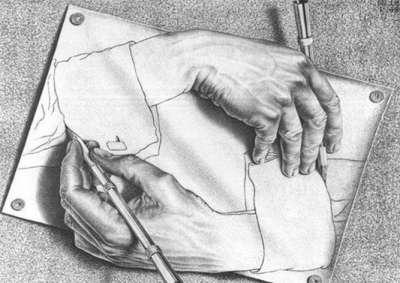
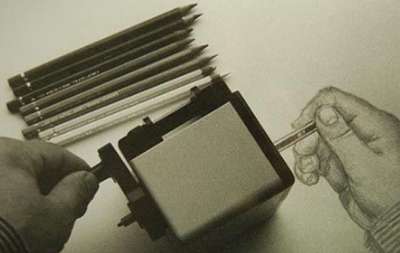
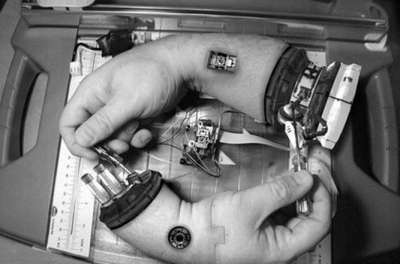
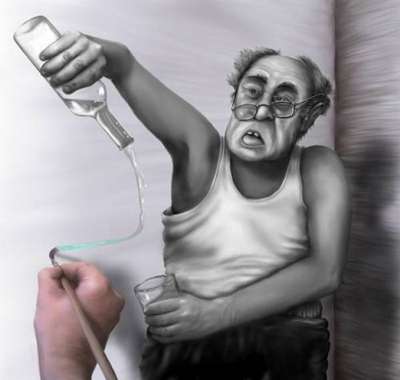

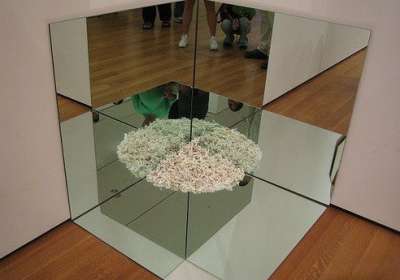

مجموعة رائعه من صور الخداع البصري






























Subscribe to:
Comments (Atom)















